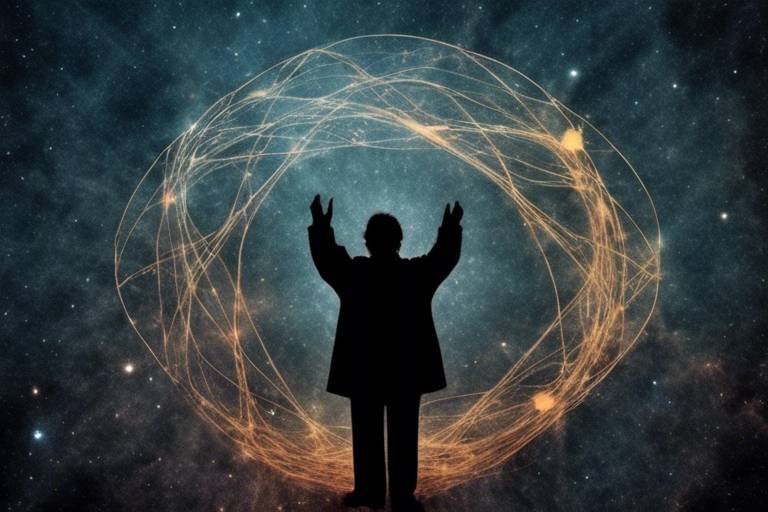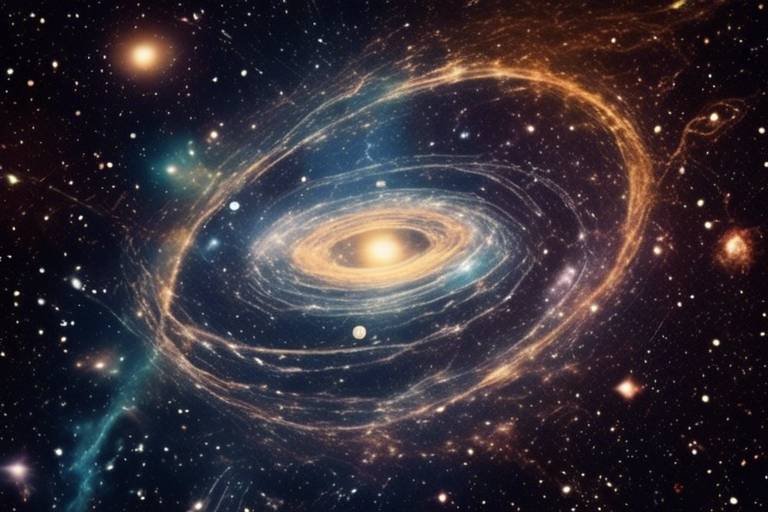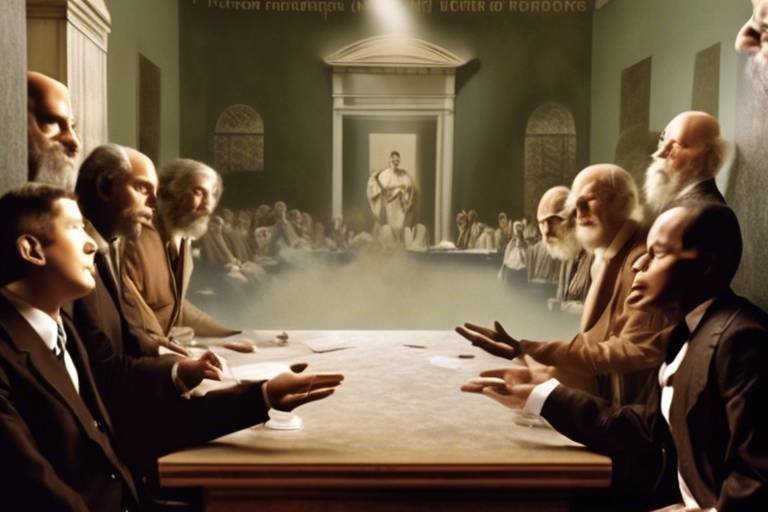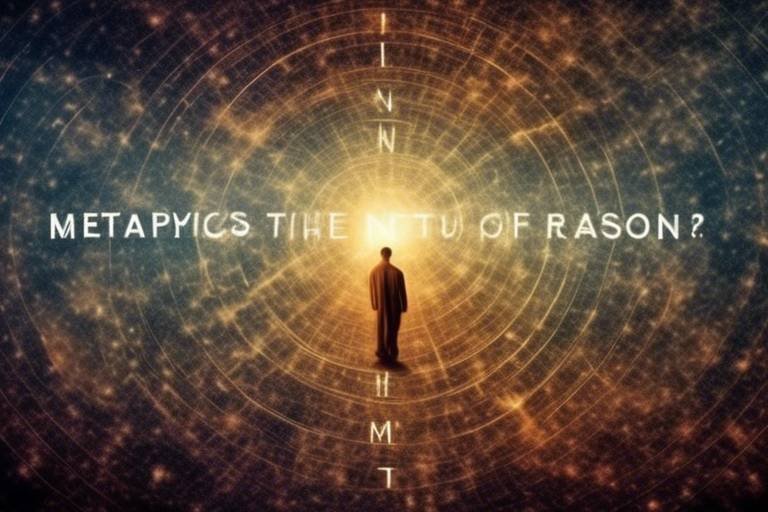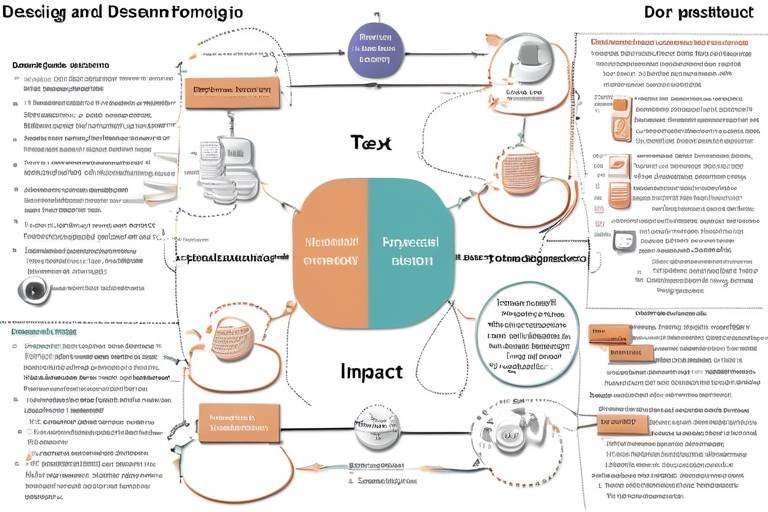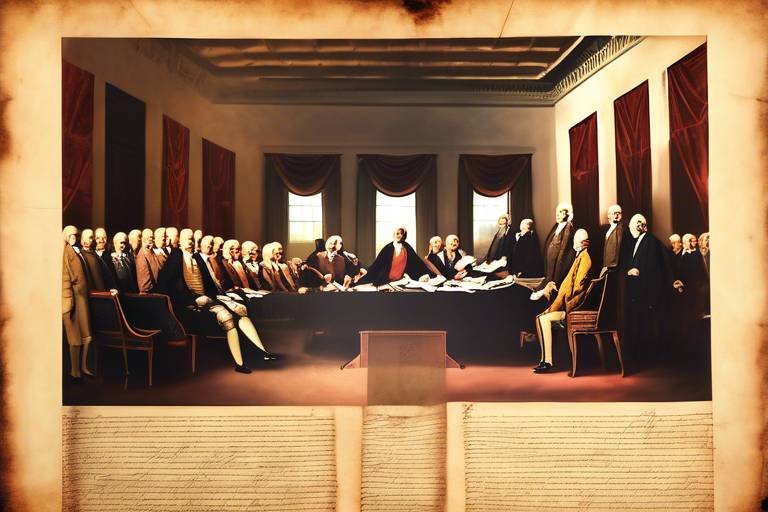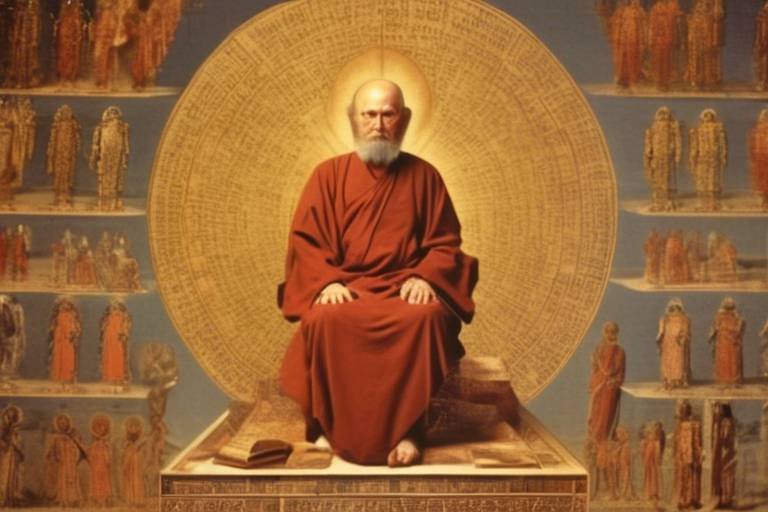Metaphysics - Seeking Answers in the Quantum Realm
Welcome to the fascinating world where metaphysics meets quantum physics. This intersection is not just a playground for scientists; it's a realm bursting with philosophical questions that challenge our understanding of reality itself. Imagine standing at the edge of a vast ocean, where the waves of quantum mechanics crash against the shores of traditional thought. What lies beneath the surface? What secrets does the quantum realm hold that could redefine our existence? In this article, we will dive deep into these questions, exploring how quantum mechanics reshapes our perception of reality, interconnectedness, and the very fabric of existence.
When we think about reality, we often picture it as a solid, unchanging landscape. But what if I told you that quantum mechanics challenges this notion? In the quantum realm, particles can exist in multiple states at once, a phenomenon known as superposition. This leads us to wonder: is reality as fixed as we believe, or is it more like a canvas that shifts and changes based on observation? Quantum mechanics suggests that reality might not be an objective truth waiting to be discovered but rather a dynamic interplay of possibilities.
Now, let's explore the mind-boggling phenomenon of quantum entanglement. Imagine two particles that, once connected, remain intertwined regardless of the distance separating them. This interconnectedness raises profound metaphysical questions. For instance, if one particle is affected, does the other feel it instantly, even if it's light-years away? This leads us to rethink our understanding of information and how it travels across the cosmos.
At the heart of quantum entanglement lies the concept of nonlocality. This idea suggests that the universe is not bound by the traditional constraints of space and time. Instead, events can influence each other instantaneously, regardless of distance. This challenges our conventional understanding of how we perceive space and time, hinting at a more intricate tapestry of existence. Could it be that our perception of time as linear is merely an illusion?
Various philosophical interpretations arise from the implications of nonlocality. For instance, what does this mean for our notions of determinism and free will? If events are interconnected in ways we cannot fully comprehend, does that suggest a predetermined path, or does it open the door for genuine choice? These questions invite us to reconsider our beliefs about agency and the nature of existence.
To ground these philosophical discussions, we turn to experimental evidence. Numerous experiments, such as the famous Bell's theorem tests, have demonstrated the reality of nonlocality. These experiments reveal that particles can exhibit behaviors that defy classical understanding, providing a scientific basis for the deep philosophical inquiries we are exploring. The results are not just numbers; they are a window into the profound mysteries of our universe.
Another intriguing aspect of quantum mechanics is the observer effect. This phenomenon suggests that the act of observation can influence the behavior of particles. So, what does this mean for consciousness? Are we, as observers, co-creators of reality? This raises tantalizing questions about the relationship between consciousness and the physical world. Could our thoughts and perceptions shape the very fabric of existence?
As we delve deeper, we uncover the broader metaphysical implications of quantum mechanics. Traditional concepts of causality and determinism come into question. The probabilistic nature of quantum mechanics suggests that events may not follow a linear path but rather exist in a web of possibilities waiting to unfold. This complexity invites us to rethink our understanding of cause and effect.
In this new light, causality is not a straightforward chain of events but a complex interplay of factors. Imagine a spider web, where each strand represents a potential outcome influenced by various forces. This perspective challenges our conventional wisdom about how events are linked and encourages a more nuanced understanding of our existence.
Lastly, let's consider the role of probability in quantum mechanics. The inherent uncertainty in quantum systems influences our discussions about certainty, knowledge, and belief systems. In a world where outcomes are not guaranteed, how do we navigate our lives? This uncertainty can be daunting, yet it also opens up a realm of possibilities, inviting us to embrace the unknown.
- What is metaphysics? Metaphysics is a branch of philosophy that explores the fundamental nature of reality, including concepts such as existence, objects, and their properties.
- How does quantum physics relate to metaphysics? Quantum physics raises profound questions about the nature of reality, challenging traditional notions and inviting philosophical inquiry.
- What is quantum entanglement? Quantum entanglement is a phenomenon where particles become interconnected, such that the state of one particle can instantly influence another, regardless of distance.
- What is the observer effect? The observer effect refers to changes that the act of observation can make on a phenomenon being observed, suggesting a link between consciousness and reality.
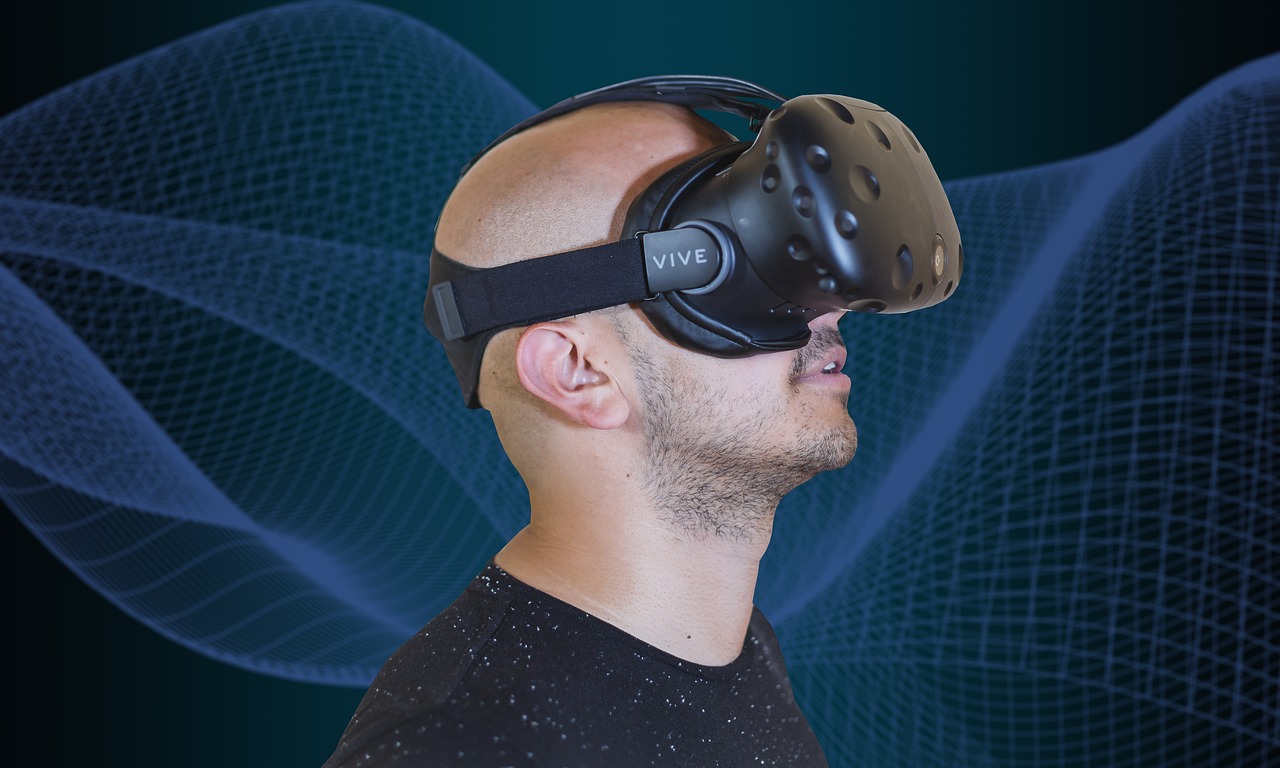
The Nature of Reality
When we think about the nature of reality, we often picture a solid, unchanging world around us, a realm where the laws of physics govern everything with unwavering certainty. However, quantum mechanics throws a wrench into this tidy perception, suggesting that reality may not be as fixed or objective as we once believed. Imagine standing in front of a mirror that reflects not just your image, but a multitude of possibilities—each one just as real as the next, yet existing simultaneously in a state of flux. This is the essence of quantum reality.
At the heart of this discussion is the concept of superposition, where particles exist in multiple states at once until they are observed. Think of it like a coin spinning in the air—until it lands, it’s both heads and tails. This phenomenon challenges the very foundation of our understanding of reality. If particles can exist in multiple states, what does that mean for our perception of a single, objective reality? Are we merely observers in a cosmic play, where our attention shapes the unfolding script?
Furthermore, the implications of quantum mechanics extend beyond the microscopic world of particles. They ripple through our understanding of the universe itself. For instance, the idea that reality is not a fixed backdrop but rather a dynamic interplay of possibilities raises profound questions: Is reality a canvas painted by our perceptions, or is it an independent entity that exists regardless of our observation? To explore this, let's consider a few fundamental ideas:
- Reality as a Construct: Some theorists argue that reality is a construct of our consciousness, shaped by our experiences and perceptions.
- Objective vs. Subjective Reality: The distinction between what is objectively real and what is subjectively experienced becomes blurred in the quantum realm.
- Interconnectedness: Quantum mechanics suggests that everything in the universe is interconnected, challenging the notion of isolated events.
In essence, quantum mechanics invites us to reconsider our definitions of reality. It asks us to embrace a more fluid understanding, one that acknowledges the role of the observer in shaping what we perceive as real. This shift in perspective can be both exhilarating and disconcerting. Imagine standing at the edge of a vast ocean, where every wave represents a different possibility, each one crashing into the shore of our consciousness, shaping our understanding of existence.
As we delve deeper into these philosophical waters, we encounter questions that have puzzled thinkers for centuries. Are we mere spectators in a grand cosmic theater, or do we play an active role in the creation of reality? This exploration is not just an academic exercise; it has profound implications for how we live our lives and understand our place in the universe.
In conclusion, the nature of reality, as illuminated by quantum mechanics, challenges us to rethink our assumptions and embrace a more nuanced view of existence. It invites us to ponder the mysteries of the universe and our role within it, ultimately leading us to a richer, more complex understanding of what it means to be alive in this ever-changing world.
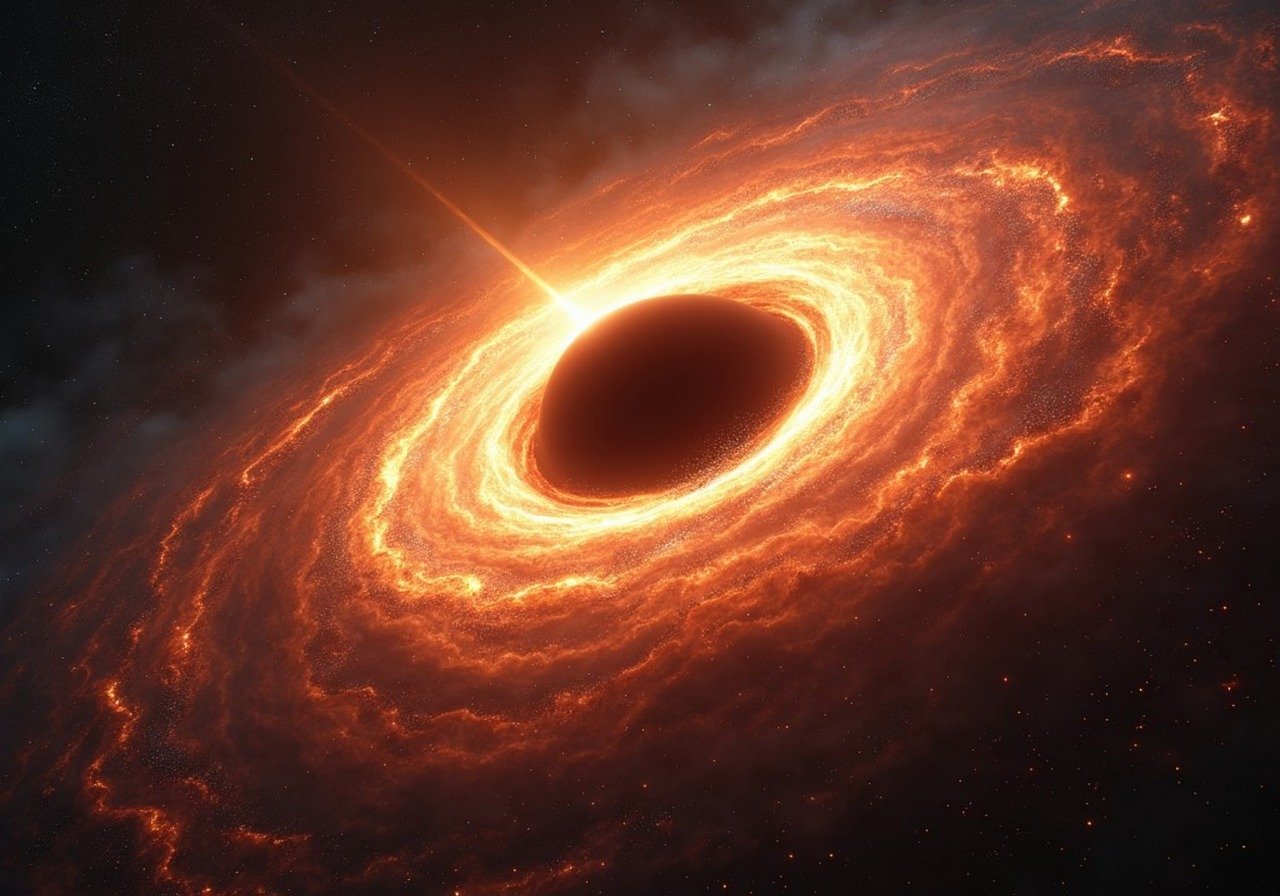
Quantum Entanglement
When we dive into the mysterious world of , we find ourselves grappling with a concept that seems to defy the very laws of nature as we know them. Imagine two particles, once connected, that continue to influence each other's states, no matter how far apart they are. This phenomenon, often described as "spooky action at a distance" by none other than Albert Einstein, challenges our conventional understanding of interconnectedness and information transfer. It's as if these particles have an invisible thread binding them together, allowing them to communicate instantaneously, transcending the limitations of space and time.
Quantum entanglement raises profound questions about the nature of reality. If two entangled particles can affect each other instantaneously across vast distances, what does this mean for our understanding of the universe? Are we all, in some way, interconnected? This notion invites us to reconsider the fabric of reality itself. It suggests that the universe might be a vast web of interactions, where every action has a ripple effect, echoing through the cosmos.
To illustrate this concept further, let's consider a simple analogy. Think of entangled particles as two dancers performing a duet. Even if one dancer is on stage in New York and the other in Tokyo, their movements are perfectly synchronized. If one dancer twirls, the other does so simultaneously, regardless of the distance separating them. This is the essence of quantum entanglement—an intricate dance of particles that defies our traditional notions of separateness.
Moreover, the implications of quantum entanglement extend beyond mere curiosity. They touch on the very core of metaphysical concepts such as information and consciousness. If entangled particles can share information instantaneously, what does this mean for our understanding of knowledge and perception? Are we, as conscious beings, merely observers in a grand cosmic play, or do we have a role in shaping reality itself?
As we explore the implications of quantum entanglement, it's important to recognize that this phenomenon isn't just a theoretical curiosity; it's backed by a wealth of experimental evidence. Numerous experiments have demonstrated the reality of entanglement, providing a solid foundation for the philosophical discussions that follow. For instance, the famous Bell's Theorem experiments have shown that entangled particles behave in ways that cannot be explained by classical physics, reinforcing the idea that our universe is far more complex than we previously imagined.
| Key Experiments Demonstrating Quantum Entanglement | Year | Significance |
|---|---|---|
| Aspect Experiment | 1982 | First experimental verification of Bell's Theorem. |
| Hensen et al. Experiment | 2015 | First loophole-free Bell test, confirming entanglement. |
| Quantum Teleportation Experiment | 1997 | Demonstrated the transfer of quantum states between particles. |
In summary, quantum entanglement is not just a fascinating aspect of quantum physics; it serves as a gateway to deeper metaphysical inquiries. As we continue to unravel the mysteries of the quantum realm, we find ourselves standing at the intersection of science and philosophy, where the questions we ask about reality, consciousness, and interconnectedness may very well redefine our understanding of existence itself.
- What is quantum entanglement? Quantum entanglement is a phenomenon where two or more particles become linked, such that the state of one instantly influences the state of the other, regardless of the distance separating them.
- How does quantum entanglement challenge classical physics? Classical physics operates under the assumption that particles have definite properties and can only influence each other through direct interaction. Quantum entanglement defies this by showing that particles can be correlated in ways that are not bound by traditional physical laws.
- What are the implications of quantum entanglement for consciousness? The observer effect and quantum entanglement suggest that consciousness might play a role in shaping reality. This raises questions about the nature of perception and the interconnectedness of all things.
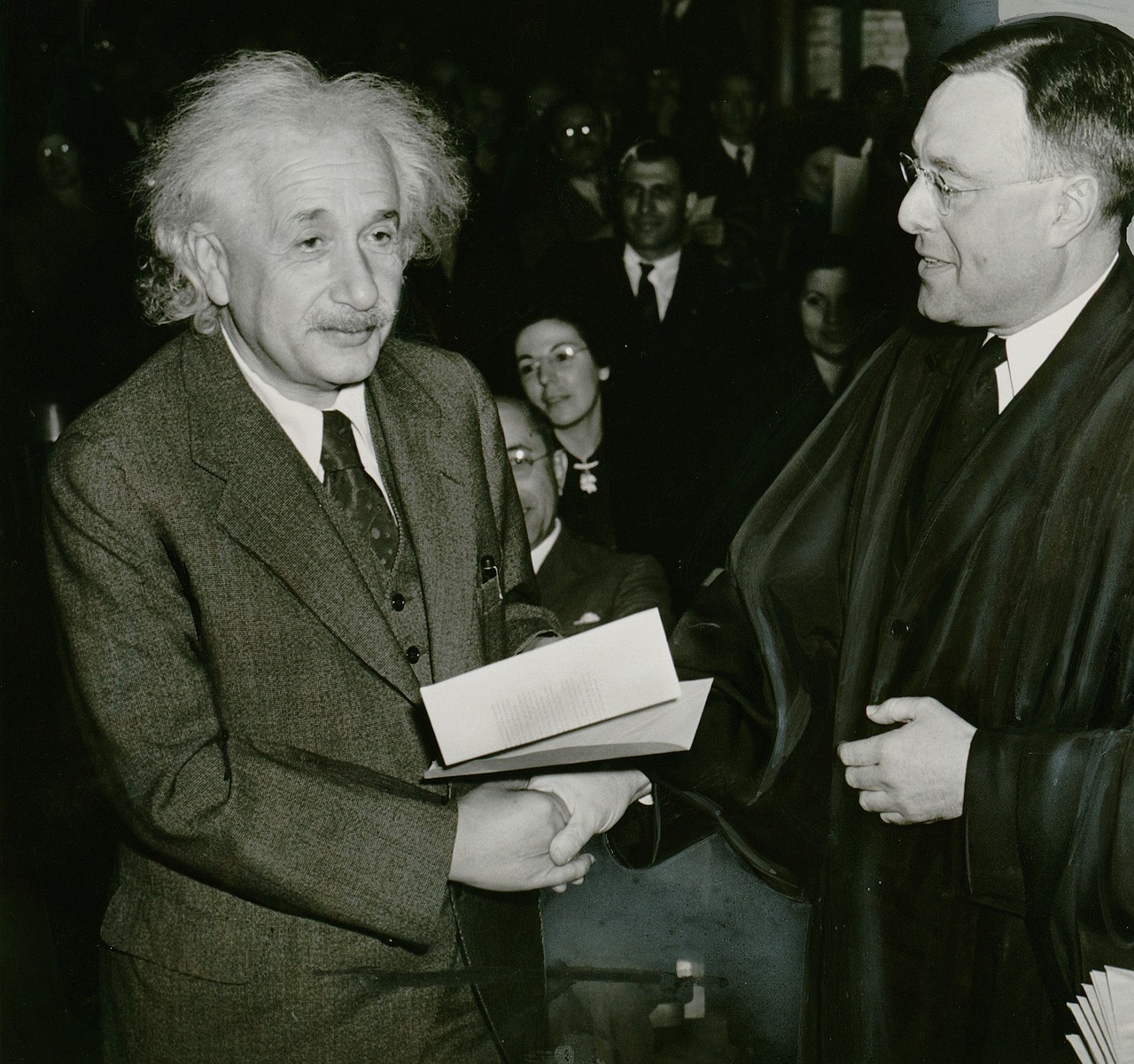
Nonlocality and Its Implications
Nonlocality is one of the most fascinating and perplexing aspects of quantum physics, fundamentally altering our understanding of how reality operates. Imagine a world where particles are not confined by the conventional boundaries of space and time. Instead, they can instantly influence one another regardless of the distance separating them. This phenomenon is not just a quirky aspect of quantum mechanics; it challenges our traditional views of locality and causality, suggesting that the universe may be interconnected in ways we have yet to fully comprehend.
To illustrate this, consider the famous thought experiment known as Einstein-Podolsky-Rosen (EPR) Paradox. In this scenario, two particles are created simultaneously and then separated by vast distances. When the state of one particle is measured, the other particle's state appears to be affected instantaneously, no matter how far apart they are. This bizarre behavior raises profound questions: How can two particles communicate faster than the speed of light? What does this mean for our understanding of space and time?
The implications of nonlocality extend beyond physics into the realm of philosophy. It prompts us to reconsider our definitions of reality, interconnectedness, and even consciousness. For instance, if particles can be nonlocally connected, does this suggest that everything in the universe is intertwined in a grand tapestry of existence? Some philosophers argue that this interconnectedness hints at a deeper reality, where separateness is an illusion. This leads us to ponder: Are we all part of a larger whole, and if so, how does this understanding influence our perception of individuality?
Moreover, nonlocality challenges our conventional notions of causality. Traditionally, we think of cause and effect as a linear relationship—A leads to B in a direct, measurable way. However, quantum mechanics introduces a more complex interplay between events, suggesting that causality may not be as straightforward as we once believed. This is where it gets really intriguing! Imagine a scenario where the outcome of an event is influenced by actions taken at a distance, defying our intuitive understanding of how things should work. This could mean that our actions, thoughts, and intentions might resonate across the universe in ways we cannot see or measure.
In a practical sense, the implications of nonlocality can be seen in various fields, from quantum computing to cryptography. For instance, quantum entanglement, which is a direct consequence of nonlocality, is being harnessed to develop ultra-secure communication methods. This technology could revolutionize how we transmit information, making it virtually impossible for eavesdroppers to intercept messages without detection.
As we delve deeper into the implications of nonlocality, we must also consider the philosophical interpretations that accompany this phenomenon. Different schools of thought emerge, each offering unique perspectives on how nonlocality fits into our understanding of the universe. For instance, some interpretations suggest that nonlocality supports a deterministic universe, where everything is interconnected and predetermined. Others argue that it opens the door to the possibility of free will, where our choices can resonate beyond the immediate context.
In conclusion, nonlocality is not just a scientific curiosity; it is a gateway to profound philosophical inquiries that challenge our understanding of reality itself. As we continue to explore the quantum realm, we are reminded that our perceptions of space, time, and causality may be mere constructs, waiting to be unraveled. The journey into the implications of nonlocality is just beginning, and who knows what new insights await us on this fascinating path!
- What is nonlocality in quantum physics? Nonlocality refers to the phenomenon where particles can instantaneously affect each other's states regardless of the distance separating them.
- How does nonlocality challenge traditional views of reality? It suggests that reality may not be as fixed or objective as previously thought, and that everything may be interconnected in ways we do not fully understand.
- What are the implications of nonlocality for causality? Nonlocality challenges the linear cause-and-effect relationship, suggesting a more complex interplay between events.
- How is nonlocality applied in technology? Nonlocality is harnessed in quantum computing and cryptography, leading to ultra-secure communication methods.

Philosophical Interpretations
When we dive into the mysterious waters of quantum mechanics, we quickly realize that it’s not just a scientific endeavor but a philosophical one as well. The implications of quantum phenomena like entanglement and nonlocality challenge our conventional understanding of reality, causality, and even free will. Various philosophical interpretations emerge, each attempting to make sense of the strange behavior of particles at the quantum level. For instance, the Copenhagen interpretation suggests that particles exist in a state of probability until observed, raising questions about the very nature of reality. Is it possible that our observation shapes the universe? This notion can be quite mind-bending!
On the other hand, the many-worlds interpretation posits that every quantum event branches into multiple realities, creating a vast multiverse. In this view, every choice we make spawns a new universe where different outcomes play out. Imagine standing at a fork in the road; in one universe, you take the left path, while in another, you choose the right. This interpretation not only redefines our understanding of choice and consequence but also invites us to ponder the nature of existence itself. Are we merely players in a cosmic game, with each decision leading us down a different path in an infinite landscape of realities?
Another compelling perspective is the pilot-wave theory, which introduces the idea of hidden variables guiding particles along deterministic paths. This interpretation attempts to reconcile quantum mechanics with classical physics, suggesting that beneath the apparent randomness lies a deeper order. It’s like discovering that the chaotic dance of a flock of birds follows an unseen choreography, challenging our intuitive grasp of freedom and determinism.
Each of these interpretations has profound implications for how we understand concepts like determinism and free will. If reality is probabilistic, does that mean our choices are merely illusions? Or does the multiverse provide a framework where every possibility is realized, allowing for genuine agency? These questions lead us to reconsider our beliefs about responsibility and the nature of reality itself. Furthermore, the implications extend beyond the realm of physics and seep into ethics, spirituality, and our understanding of consciousness.
In summary, the philosophical interpretations of quantum mechanics are not just academic exercises; they invite us to reevaluate our understanding of existence, agency, and the very fabric of reality. As we grapple with these profound questions, we find ourselves at the intersection of science and philosophy, where the mysteries of the universe await our exploration.
- What is the Copenhagen interpretation? This interpretation suggests that particles exist in a state of probability until they are observed, raising questions about the role of the observer in shaping reality.
- What is the many-worlds interpretation? This theory posits that every quantum event leads to the creation of multiple realities, resulting in a vast multiverse where all possible outcomes occur.
- How does the pilot-wave theory differ from other interpretations? The pilot-wave theory introduces hidden variables that guide particles along deterministic paths, suggesting a deeper order beneath quantum randomness.
- What are the implications of these interpretations for free will? The interpretations challenge our understanding of free will, questioning whether our choices are genuine or merely illusions shaped by quantum mechanics.

Experimental Evidence
When we talk about the intriguing world of quantum mechanics, it's not just theoretical musings; there's a wealth of that supports these mind-bending ideas. One of the most famous experiments that highlight the peculiarities of quantum mechanics is the double-slit experiment. This classic setup demonstrates how particles, like electrons, can behave both as particles and waves, depending on whether they are being observed. Imagine throwing a pebble into a pond and watching the ripples spread out; now, if you could somehow watch the pebble as it hits the water, you'd see a different outcome entirely. This duality raises profound questions about the nature of reality and the role of the observer.
Another significant experiment is the Bell's theorem experiments, which test the concept of quantum entanglement. These experiments have shown that entangled particles can influence each other instantaneously, regardless of the distance separating them. This phenomenon defies our traditional understanding of space and time, suggesting that information can be shared in ways that seem impossible. For instance, if two entangled particles are light-years apart, a change in one seems to affect the other instantaneously, like a cosmic game of telephone that transcends the limitations of our physical universe.
To better understand the impact of these experiments, consider the following table that summarizes key experiments demonstrating quantum nonlocality:
| Experiment | Key Findings | Significance |
|---|---|---|
| Double-Slit Experiment | Particles exhibit wave-particle duality. | Challenges the concept of objective reality. |
| Bell's Theorem Experiments | Supports the existence of quantum entanglement. | Questions the separability of distant particles. |
| Aspect Experiment | Confirmed entanglement and nonlocality. | Strengthens the case against local hidden variables. |
These experiments not only provide empirical evidence for the strange behaviors predicted by quantum theory but also open the door to profound philosophical implications. They challenge our understanding of causality and the interconnectedness of the universe, forcing us to reconsider what we know about reality. Are we, as observers, merely passive witnesses to a predetermined universe, or do our actions play a crucial role in shaping the fabric of existence? This question remains at the forefront of both scientific and metaphysical discussions.
As we delve deeper into the implications of these findings, it's essential to remember that the world of quantum mechanics is not just a realm for physicists; it's a playground for philosophers and thinkers who ponder the nature of existence itself. The experimental evidence we have today continues to spark debates and inspire new theories about the universe, consciousness, and our place within it.
- What is the double-slit experiment? - It is an experiment that illustrates the wave-particle duality of light and matter.
- What does quantum entanglement mean? - It refers to a phenomenon where particles become interconnected and the state of one instantly influences the state of another, regardless of distance.
- Why is nonlocality important? - Nonlocality challenges our conventional understanding of space and time, suggesting a more complex relationship between events in the universe.

Observer Effect and Consciousness
The observer effect in quantum mechanics is a fascinating concept that raises profound questions about the nature of reality and our role in it. At its core, the observer effect suggests that merely observing a quantum system can alter its state. This idea flips the traditional notion of a passive observer on its head, suggesting instead that our consciousness plays an active role in shaping the reality we experience. Imagine a painter who, with each stroke of their brush, not only creates a picture but also influences the emotions and thoughts of those who view it. In a similar way, our observation can influence the very fabric of the universe.
When we delve deeper into this concept, we find ourselves at the intersection of quantum physics and consciousness. The implications are staggering. Could it be that our thoughts and intentions have the power to influence the physical world around us? This notion is not just the stuff of science fiction; it’s a question that has intrigued philosophers and scientists alike. The idea that consciousness could affect quantum states makes us reconsider our understanding of reality itself. Are we merely passive observers, or do we hold the keys to shaping our own universe?
To illustrate this further, let’s consider a simple analogy. Think of reality as a vast ocean, and our consciousness as a boat navigating through it. As we steer our boat, we create ripples that affect the water around us. In the quantum realm, our awareness could be those ripples, influencing the very particles that make up our reality. This perspective opens up a myriad of possibilities about the interconnectedness of all things and the role we play in the grand tapestry of existence.
Moreover, the observer effect prompts us to question the nature of knowledge itself. If our observation can change the state of a quantum system, what does that say about our understanding of truth and certainty? In a world where reality is not fixed but fluid, the lines between knowledge, belief, and perception become increasingly blurred. This invites us to explore our beliefs about what is real and how we come to know it. Are we, in fact, co-creators of our reality, or are we simply interpreting a pre-existing truth?
As we ponder these questions, it’s essential to recognize the implications for our everyday lives. If our consciousness can influence the quantum realm, then perhaps our thoughts and intentions hold more power than we realize. This idea resonates with various spiritual and philosophical traditions that emphasize the importance of mindfulness and intention-setting. The power of positive thinking, visualization, and focused intention may not just be motivational slogans; they could be tapping into a deeper, quantum-level truth about our existence.
In conclusion, the observer effect is more than just a scientific phenomenon; it is a doorway into understanding the profound relationship between consciousness and reality. It challenges us to rethink our role in the universe and encourages us to explore the potential of our minds to shape the world around us. As we continue to unravel the mysteries of quantum mechanics, we may find that the answers to our most pressing existential questions lie not just in the realm of science, but also within the depths of our consciousness.
- What is the observer effect in quantum mechanics? The observer effect refers to the phenomenon where the act of observing a quantum system can change its state.
- How does the observer effect relate to consciousness? It suggests that our consciousness may play an active role in shaping reality, influencing the outcome of quantum events.
- Can our thoughts influence the physical world? While it's a debated topic, some interpretations of quantum mechanics propose that consciousness can affect quantum states.
- What are the implications of the observer effect for knowledge? It challenges traditional notions of fixed reality, suggesting that knowledge may be more fluid and subjective than previously thought.

Metaphysical Implications of Quantum Mechanics
When we dive into the depths of quantum mechanics, we find ourselves not just unraveling the mysteries of particles and waves, but also challenging our very understanding of existence itself. Quantum mechanics, with its peculiar principles, serves as a gateway to profound metaphysical questions that push the boundaries of what we consider real. For instance, the notion of causality—the idea that every effect has a specific cause—begins to blur. In the quantum realm, events can seem to occur without clear causative links, suggesting that our traditional views are too simplistic to encapsulate the complexity of the universe.
This leads us to reconsider the nature of determinism. If events at the quantum level can occur randomly, does that imply that our lives are governed by chance rather than a predetermined path? This uncertainty can be unsettling, yet it opens up fascinating avenues for thought. Imagine life as a game of chess, where every move is calculated and leads to a specific outcome. Now, picture a game where the rules change with each turn, and the outcome is never certain. This analogy illustrates how quantum mechanics introduces a layer of unpredictability that can redefine our understanding of existence.
Furthermore, the role of probability in quantum mechanics cannot be overstated. Unlike classical physics, where outcomes can often be predicted with precision, quantum mechanics operates on probabilities. This inherent uncertainty prompts us to question the very essence of knowledge and belief systems. How can we claim to know something if its existence is based on probability rather than certainty? This philosophical dilemma encourages a more fluid understanding of truth, one that embraces ambiguity rather than shying away from it.
To illustrate these points, consider the following table that encapsulates some of the key metaphysical implications of quantum mechanics:
| Concept | Traditional View | Quantum View |
|---|---|---|
| Causality | Every effect has a specific cause. | Effects can occur without clear causes. |
| Determinism | Future events are predetermined by past events. | Future events may be influenced by probability. |
| Nature of Reality | Reality is objective and fixed. | Reality may be subjective and dependent on observation. |
As we peel back the layers of quantum mechanics, we are left with more questions than answers. The implications stretch beyond physics and seep into the realms of philosophy and spirituality. Could it be that our consciousness plays a role in shaping reality? The observer effect suggests that the act of observation itself can influence outcomes, hinting at a deeper connection between the observer and the observed. This intertwining of consciousness and reality invites us to explore the idea that we are not mere spectators in the universe, but active participants in its unfolding narrative.
In conclusion, the metaphysical implications of quantum mechanics challenge us to rethink our understanding of existence, causality, and reality itself. As we grapple with these profound concepts, we are encouraged to embrace the uncertainty and complexity of life. After all, isn't it the mysteries that make our journey through the universe so exhilarating?
- What is quantum mechanics? Quantum mechanics is a fundamental theory in physics that describes the physical properties of nature at the scale of atoms and subatomic particles.
- How does quantum mechanics challenge traditional views of reality? Quantum mechanics introduces concepts like superposition and entanglement, suggesting that reality is not as fixed or objective as previously believed.
- What is the observer effect? The observer effect refers to changes that the act of observation can make on a phenomenon being observed, indicating a connection between consciousness and reality.
- Can quantum mechanics provide insights into free will? The probabilistic nature of quantum mechanics raises questions about determinism and free will, suggesting that not all events are predetermined.

Redefining Causality
In the realm of quantum mechanics, the conventional understanding of causality is undergoing a profound transformation. Traditionally, we’ve been taught that causality follows a linear path: A causes B, and B leads to C. However, quantum phenomena challenge this straightforward narrative, suggesting that the relationship between events is far more intricate and less predictable than we once believed. Imagine causality as a web rather than a straight line—each event intricately connected to others in ways that aren’t immediately visible. This notion invites us to reconsider how we perceive cause and effect in our everyday lives.
One of the most striking aspects of quantum mechanics is the concept of superposition, where particles exist in multiple states at once until observed. This phenomenon raises the question: does the act of observation itself play a role in determining the outcome? In a sense, the observer becomes a part of the equation, introducing a level of subjectivity that complicates our understanding of causality. If we think about it, isn’t it fascinating to consider that our conscious choices might influence the very fabric of reality? This intertwining of observer and observed hints at a more complex interplay of events, where causality is not merely a sequence of actions but a dynamic relationship shaped by perception.
Furthermore, quantum entanglement adds another layer to this discussion. When two particles become entangled, the state of one instantly influences the state of the other, regardless of the distance separating them. This phenomenon challenges our classical notions of space and time, suggesting that causality might not be confined to local interactions. Instead, it hints at a broader, more interconnected reality where events can affect one another instantaneously across vast distances. Imagine a cosmic dance where every move resonates throughout the universe, transcending the limitations of time and space. This perspective compels us to rethink the boundaries of causality and consider a more holistic view of existence.
As we delve deeper into the implications of quantum mechanics, we find ourselves grappling with profound questions about determinism and free will. If causality is not as straightforward as we once thought, what does that mean for our understanding of choice and agency? Are we mere puppets in a predetermined universe, or do we possess the power to influence outcomes in ways we have yet to comprehend? This interplay between randomness and determinism invites us to explore the philosophical ramifications of quantum mechanics, bridging the gap between science and metaphysics.
To summarize, redefining causality in light of quantum mechanics opens up a world of possibilities. It encourages us to embrace uncertainty and complexity, challenging our preconceived notions of how events unfold. As we navigate this intricate landscape, we are reminded that reality is not a simple narrative but a rich tapestry woven from countless threads of interconnected experiences. By acknowledging the multifaceted nature of causality, we not only expand our understanding of the universe but also enrich our appreciation for the mysteries of existence itself.
Frequently Asked Questions
- What is causality in quantum mechanics? Causality in quantum mechanics refers to the relationship between events where traditional linear cause-and-effect relationships are challenged by phenomena such as superposition and entanglement.
- How does the observer effect relate to causality? The observer effect suggests that the act of observation can influence the outcome of a quantum event, implying that the observer plays a role in shaping reality.
- What are the implications of quantum entanglement for causality? Quantum entanglement implies that events can be interconnected instantaneously, regardless of distance, which challenges classical notions of local causality.
- Does quantum mechanics support determinism? Quantum mechanics introduces elements of randomness and uncertainty, raising questions about determinism and the extent of free will in the universe.

The Role of Probability
The realm of quantum mechanics is a fascinating playground where probability reigns supreme, challenging our traditional understanding of certainty and knowledge. Unlike classical physics, where outcomes can often be predicted with precision, quantum mechanics introduces a world where events are not merely deterministic but probabilistic. This shift in perspective forces us to reconsider how we interpret reality. Imagine flipping a coin; in classical terms, you expect a 50/50 chance of landing heads or tails. But in quantum mechanics, the coin might not even be in a defined state until you observe it, leading to a multitude of potential outcomes.
At the heart of this probabilistic nature is the famous Heisenberg Uncertainty Principle, which posits that certain pairs of physical properties, like position and momentum, cannot be simultaneously known to arbitrary precision. This principle doesn't just apply to particles; it reverberates through our understanding of existence itself. If we can't know both the position and momentum of a particle with certainty, what does that say about our ability to predict events in our own lives? This uncertainty introduces a layer of complexity that can feel both exhilarating and unsettling.
Furthermore, the probabilistic framework of quantum mechanics leads to a variety of interpretations, each with its own philosophical implications. For instance, the Copenhagen interpretation suggests that until a measurement is made, particles exist in a state of superposition, embodying multiple possibilities at once. This raises profound questions about the nature of reality: is it a fixed entity, or is it shaped by our observations? In contrast, the many-worlds interpretation posits that every possible outcome of a quantum event actually occurs, creating a vast multiverse of realities. This idea can be mind-boggling, as it implies that every choice we make may lead to the creation of alternate realities.
To further illustrate this concept, consider the following table that summarizes key interpretations of quantum mechanics and their implications on the role of probability:
| Interpretation | Key Concept | Implications |
|---|---|---|
| Copenhagen Interpretation | Superposition until measurement | Reality is observer-dependent |
| Many-Worlds Interpretation | All outcomes occur | Infinite realities exist simultaneously |
| De Broglie-Bohm Theory | Particle trajectories guided by a wave function | Restores determinism at the cost of realism |
As we dive deeper into the implications of probability within quantum mechanics, we must also consider how this affects our understanding of causality. In a world governed by probabilities, causality becomes less about linear cause-and-effect relationships and more about a complex web of interactions. This perspective can reshape our beliefs about fate, free will, and the very fabric of existence. Are our choices truly ours, or are they merely the result of probabilistic outcomes? The more we explore, the more we realize that the universe is not a simple machine but a dynamic, interconnected tapestry of possibilities.
In conclusion, the role of probability in quantum mechanics is not just a technical detail; it has profound metaphysical implications that challenge our understanding of reality. As we grapple with these concepts, we are reminded that the universe is a mysterious place, full of surprises and complexities that defy our conventional wisdom. Embracing this uncertainty can be liberating, opening our minds to new ways of thinking about existence and our place within it.
- What is the significance of probability in quantum mechanics? Probability is central to quantum mechanics as it describes the likelihood of different outcomes, challenging traditional deterministic views of physics.
- How does the Heisenberg Uncertainty Principle relate to probability? The Heisenberg Uncertainty Principle illustrates that certain pairs of physical properties cannot be precisely known simultaneously, introducing inherent uncertainty into measurements.
- What are the implications of the many-worlds interpretation? The many-worlds interpretation suggests that all possible outcomes of quantum events occur, leading to the existence of multiple, parallel realities.
- How does probability affect our understanding of causality? In a probabilistic framework, causality becomes a complex web of interactions rather than a simple linear progression, reshaping our beliefs about free will and determinism.
Frequently Asked Questions
- What is metaphysics and how does it relate to quantum physics?
Metaphysics is the branch of philosophy that explores fundamental questions about existence, reality, and the nature of things. When it intersects with quantum physics, it raises intriguing questions about the nature of reality itself, suggesting that what we perceive may not be the complete picture. Quantum mechanics challenges our traditional views, hinting that reality could be more fluid and interconnected than we ever imagined.
- What is quantum entanglement and why is it important?
Quantum entanglement is a phenomenon where particles become interconnected in such a way that the state of one particle instantly influences the state of another, no matter the distance between them. This challenges our understanding of separateness and suggests a profound interconnectedness in the universe, which has significant metaphysical implications regarding the nature of information and existence.
- How does nonlocality affect our understanding of space and time?
Nonlocality suggests that particles can affect each other instantaneously, regardless of the distance separating them, which challenges our conventional understanding of space and time as fixed dimensions. This leads us to rethink the very fabric of reality, proposing a more complex and intertwined view of how events and entities relate to one another.
- What is the observer effect in quantum mechanics?
The observer effect refers to changes that the act of observation can make on a phenomenon being observed. In quantum mechanics, this raises profound questions about the role of consciousness and the observer in shaping reality. It invites us to ponder whether reality exists independently of our observation or if it is somehow influenced by our consciousness.
- What are the philosophical implications of quantum mechanics?
Quantum mechanics challenges many traditional philosophical notions, particularly concerning causality and determinism. It suggests that events may not be strictly determined by prior states, opening the door to discussions about free will and the nature of existence itself. These implications can reshape our understanding of knowledge, belief systems, and the very nature of reality.
- How does quantum mechanics redefine causality?
Quantum mechanics introduces a more complex view of causality, where events may not follow a linear cause-and-effect relationship. Instead, events can be interconnected in ways that defy classical logic, suggesting that our understanding of cause and effect needs a significant overhaul to accommodate the nuances of quantum interactions.
- What role does probability play in quantum mechanics?
Probability is at the heart of quantum mechanics, influencing how we understand certainty and knowledge. Unlike classical mechanics, where outcomes can often be predicted with certainty, quantum mechanics operates on probabilities, leading to discussions about belief systems and how we perceive knowledge in a world where outcomes are inherently uncertain.



